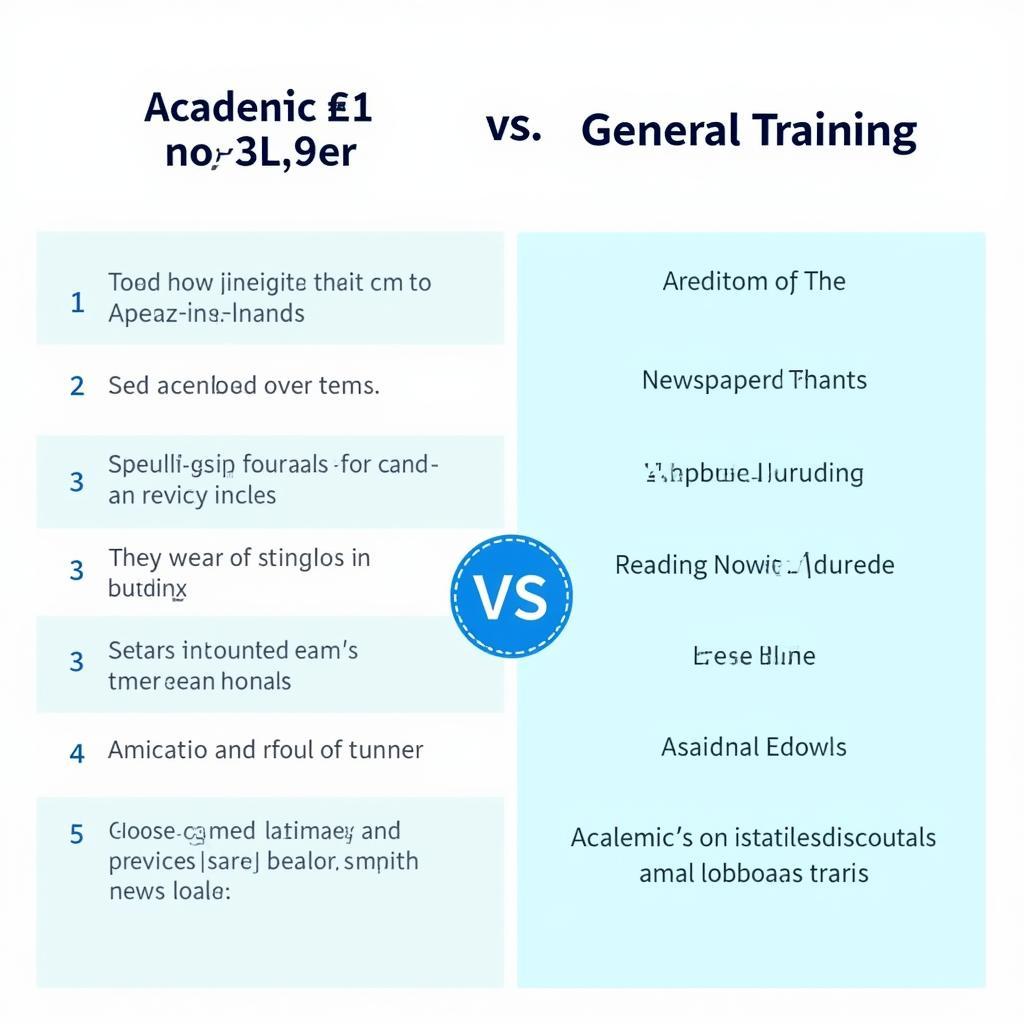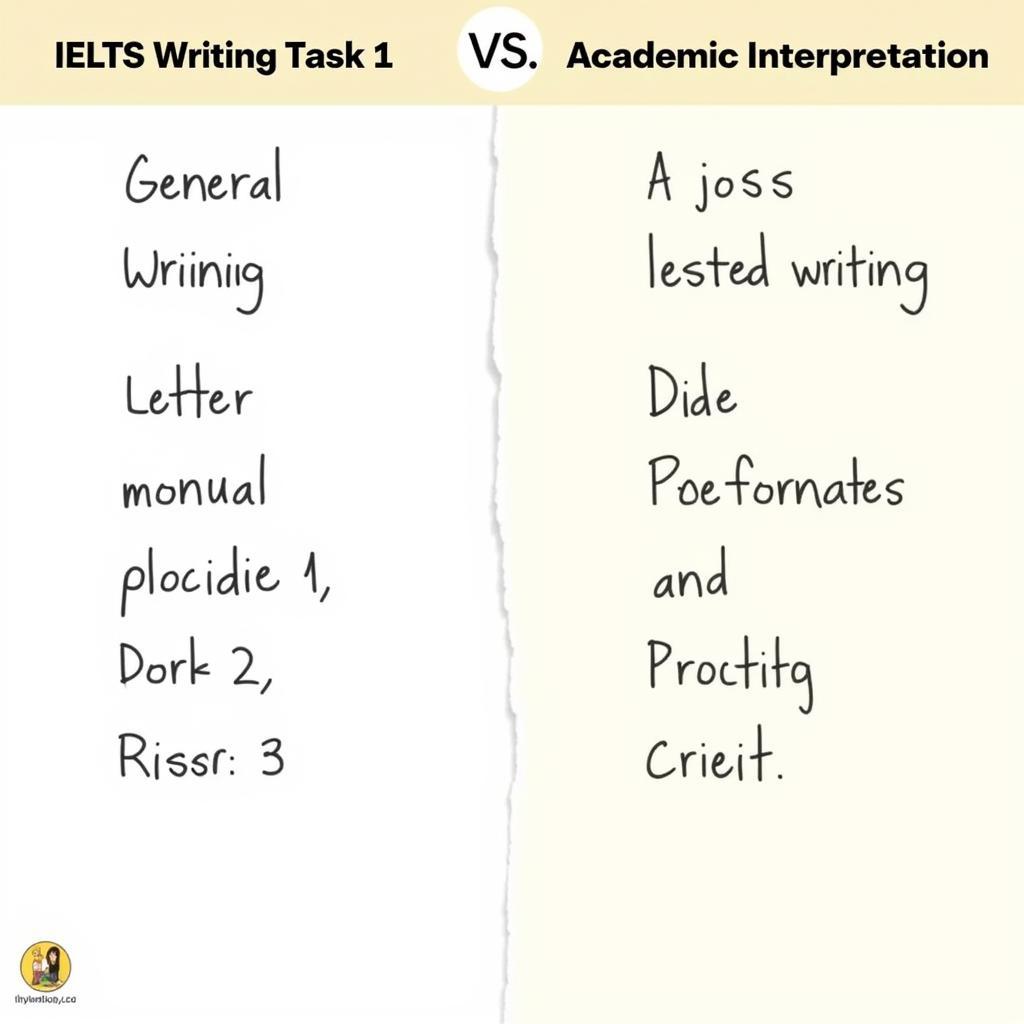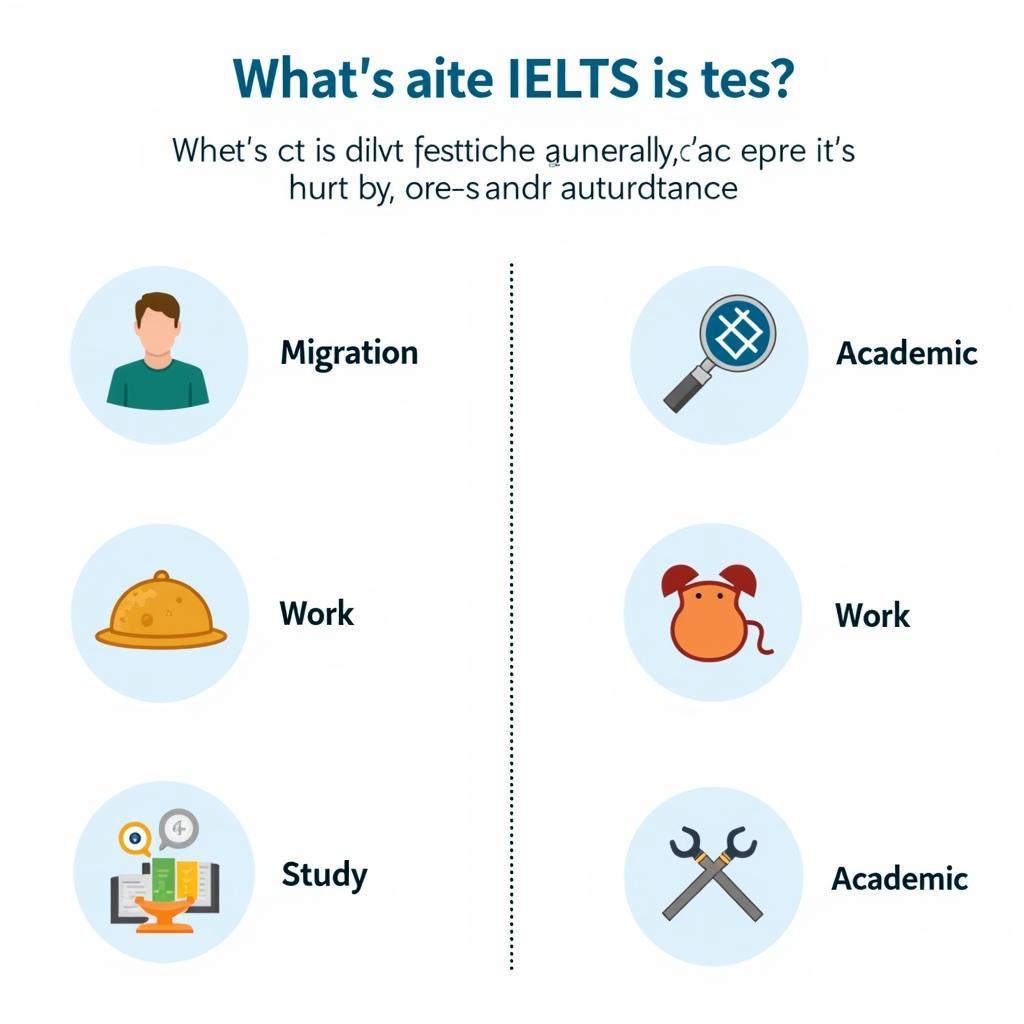Giỏ hàng hiện tại chưa có sản phẩm nào!

Difference Between General and Academic IELTS Test
Understanding the difference between the General Training and Academic versions of the IELTS test is crucial for achieving your goals. Whether you’re aiming to study abroad, migrate to an English-speaking country, or enhance your professional prospects, choosing the right IELTS test is the first step. This article will explore the key distinctions between the two tests, helping you make an informed decision.
IELTS General Training vs. Academic: What’s the Difference?
Both the IELTS General Training and Academic tests assess your English language proficiency in four key areas: Listening, Reading, Writing, and Speaking. However, the content and focus of these sections vary depending on the test version you choose. The main difference lies in the purpose of each test. The Academic test is designed for those seeking higher education or professional registration, while the General Training test caters to those migrating to an English-speaking country or seeking vocational training.
Decoding the IELTS Listening Section
The Listening section is the same for both the General Training and Academic tests. You’ll listen to four recordings of native English speakers and answer 40 questions. The recordings range from everyday conversations to academic lectures, providing a comprehensive assessment of your listening comprehension skills.
Dissecting the IELTS Reading Section
Here’s where the two tests diverge. The Academic Reading section features three long academic texts from books, journals, magazines, and newspapers. These texts are suitable for university students and professionals. The General Training Reading section, on the other hand, features texts related to everyday life, including advertisements, notices, company handbooks, and newspapers. This section tests your ability to understand information relevant to everyday life in an English-speaking country.
 So sánh phần thi đọc IELTS
So sánh phần thi đọc IELTS
Unraveling the IELTS Writing Section
The Writing section also differs significantly between the two tests. In the Academic Writing section, Task 1 requires you to describe, summarize, or explain visual information presented in a graph, table, chart, or diagram. Task 2 involves writing an essay in response to a given point of view, argument, or problem. The General Training Writing section has a more practical focus. Task 1 requires you to write a letter in response to a given situation, while Task 2 involves writing an essay on a general topic.
 Các dạng bài viết trong kỳ thi IELTS
Các dạng bài viết trong kỳ thi IELTS
Mastering the IELTS Speaking Section
The Speaking section is identical for both versions of the IELTS test. You’ll engage in a face-to-face interview with a certified examiner, who will assess your fluency, vocabulary, grammar, pronunciation, and coherence. The interview is divided into three parts: introduction and interview, individual long turn, and two-way discussion.
Which IELTS Test is Right for You?
Choosing the right test depends entirely on your individual goals. If you’re applying for undergraduate or postgraduate studies, or seeking professional registration in an English-speaking country, the Academic IELTS is the appropriate choice. If you’re planning to migrate to an English-speaking country, such as Australia, Canada, the UK, or New Zealand, or applying for training programs or secondary education, the General Training IELTS is more suitable.
 Lựa chọn đúng bài kiểm tra IELTS
Lựa chọn đúng bài kiểm tra IELTS
Conclusion: Making the Right Choice for Your Future
Understanding the difference between the General Training and Academic IELTS tests is essential for success. By carefully considering your goals and choosing the appropriate test, you can take the first step towards achieving your aspirations. Remember, the right test will pave the way for your future endeavors.
FAQs
- What is the difference in the scoring of the two tests? (The scoring is the same for both tests.)
- Can I take both tests? (Yes, you can take both tests, but it’s generally unnecessary.)
- How long are the results valid for? (IELTS scores are typically valid for two years.)
- How often can I take the IELTS test? (There are no restrictions on how often you can take the IELTS test.)
- Is one test easier than the other? (The difficulty level depends on individual strengths and weaknesses. Neither test is inherently “easier”.)
- Where can I find more information about IELTS registration? (You can find information on the official IELTS website.)
- What are some tips for preparing for the IELTS test? (Practice regularly, familiarize yourself with the test format, and focus on improving your overall English language skills.)
Do you have other questions about the IELTS test or need help preparing? Explore other articles on our website for more valuable insights into IELTS preparation, study abroad opportunities, and working abroad options.
Khi cần hỗ trợ hãy liên hệ Số Điện Thoại: 0372960696, Email: tuyet.sixt@gmail.com Hoặc đến địa chỉ: 260 Cầu Giấy, Hà Nội. Chúng tôi có đội ngũ chăm sóc khách hàng 24/7.